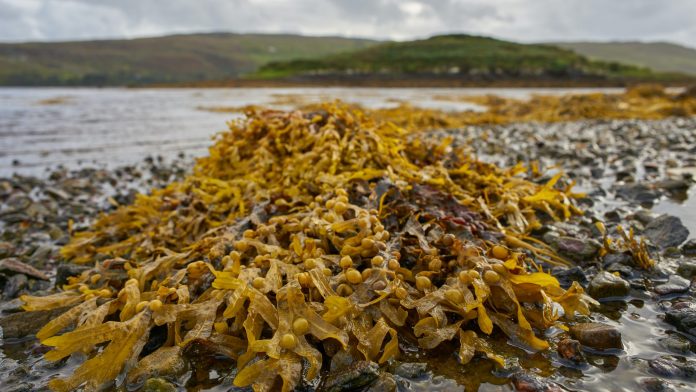Tharaka Nithi County could be the next frontier for seaweed farming after new developments at the Kenya Marine and Fisheries Research Institute (KMFRI).
The move is meant to harness the blue economy while helping communities in the area develop through various economic activities as a result of farming in the area.
Seaweed has a variety of uses including its use as fish feeds. It can also be processed to generate thickeners in the pharmaceutical, cosmetic, and food industries. It can also be used as a soil conditioner and fertilizer.
According to Ms. Gladys Mwaka, a Mariculture research scientist at KMFRI, the seaweed farming study will be part of activities in a new research center being set up in Mutonga, Tharaka Nithi.
She said that already, the County government has already allocated 10 acres for the construction of the center that will concentrate on water bodies and the raring of fish.
“We are planning to open a branch in Tharaka Nithi County. This will be a plan that is going to benefit most communities in the Mount Kenya region because Mutonga is a strategic location giving access to water resources.
They will get the benefits that partner communities in the Coast region receive from KMFRI,” Ms. Mwaka said.
Also Read
- President Kenyatta Encourages African Youth To Take Up Agriculture
- AfDB To Support Agriculture Value Chains, Job Creation
- President Uhuru Unveils 2.2 Billion Agriculture Fund, 4K Clubs
She said the core reason for the study will also be to see if the features of the Indian Ocean can be adapted in the county located in Central Kenya, including a change of salinity levels in water resources to support the growth of seaweeds.
The officer spoke during a tour of Tharaka Nithi county officials in Kibuyuni, Kwale County where the community here has for long adapted seaweed farming after successful research by KMFRI.
Another project that is set to be implemented in the Tharaka Nithi, which is popularly known for crop farming, is fish raring in cages.
Ms Nora Mangangi, a technical operator at Kibuyuni Sea Weed farming said the seaweed cultivation project had positively impacted in the community around and will be great to do if the same is applied in another region.
“We only did the research for two years and then implemented it, it is clear that this has had a great impact in the village here,” she said.
A kilo is sold at Sh25 depending on the dollar on that particular trading day.
Ms Mangangi said the project has empowered many women who have earned from seaweed farming whose products are sold locally and internationally.
“One farmer gets at least one tonne in one and a half months. Our 200 farmers have since collected at least 250 tonnes. The weed is sold as raw material when dry but also do value addition such as making lotions, jelly, soap and food,” she said.
Fatuma Mohammed, the chairperson of Sea Weed Cooperative in Kibuyuni and also a farmer said more than 200 farmers have benefited from the weed which only takes 45 days.
“This has helped us economically because we can now afford healthcare and take our children to school. More women who are a majority of the farmers have also benefited from the project,” she explained.
Tharaka Nithi Deputy Speaker John Njagi, who is also the chair of Agriculture, Livestock and fisheries Committee said a National Riverline Aquaculture Research and training center will be set up in the county and they seek to understand in advance how his community will benefit from the institution.
“There are water resources in our areas and it will be of great benefit if we harness it for the living standards of our people to be uplifted,” he said.
*This article was written by Ramadhan Kambi for Uzalendo News. Email: uzalendonews24@gmail.com to submit your story.



















